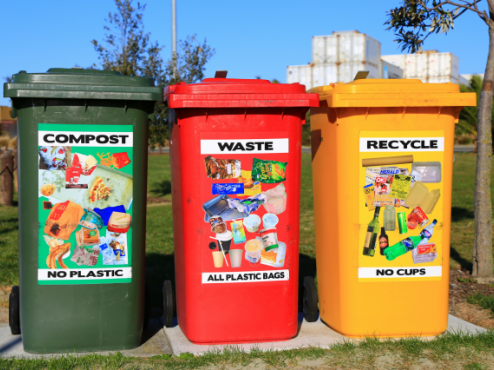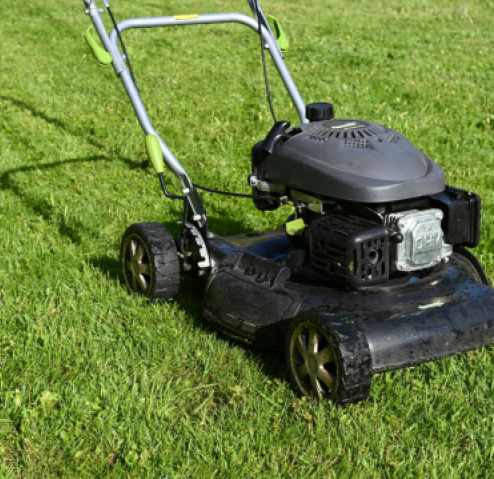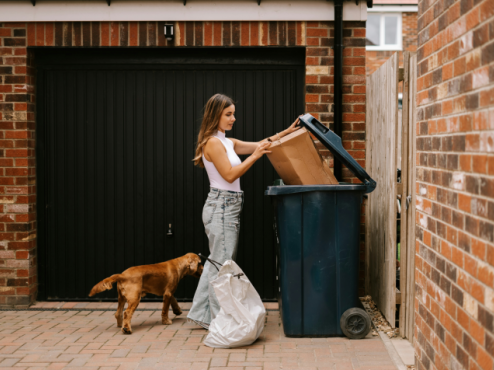Everything You Need to Know About Recycling Old Lawn Mowers
If you have an old lawn mower sitting around and are unsure of the best way to dispose of it, recycling is an eco-friendly option that allows you to safely repurpose valuable materials. Lawn mowers, whether gas-powered, electric, or manual, contain metals, plastics, and sometimes hazardous fluids that shouldn’t end up in a landfill. This guide walks you through everything you need to know about recycling an old lawn mower, from preparing it for recycling to exploring the best disposal options.
1. Why Should You Recycle Your Old Lawn Mower?
Recycling isn’t just about clearing out your shed—it has environmental and economic benefits that contribute to a more sustainable future. Here are some reasons to consider recycling your old mower:
- Conserves Resources: Mowers contain metals and other materials that can be reclaimed and reused, reducing the demand for new raw materials.
- Reduces Environmental Impact: Proper disposal prevents hazardous fluids, like oil and gasoline, from contaminating soil and groundwater.
- Promotes Energy Efficiency: Recycling materials takes less energy than producing new ones, reducing greenhouse gas emissions.
- Supports a Circular Economy: Recycling helps keep valuable materials in use and minimizes waste in landfills.
2. Preparing Your Lawn Mower for Recycling
To ensure safe and smooth recycling, it’s essential to prepare your lawn mower properly. Follow these steps to get your mower ready:
a. Drain Gasoline and Oil
If you have a gas-powered mower, the first step is to drain all fluids:
- Gasoline: Drain gasoline into an appropriate fuel container for safe disposal or use it in another machine if it’s clean.
- Oil: Drain the oil into a separate container, and take it to a recycling facility or auto shop that accepts used oil. Never pour gasoline or oil down drains or in regular trash, as it can cause serious environmental harm.
b. Remove Batteries and Spark Plugs
For electric or battery-operated mowers, remove the battery, which can be recycled at an electronics or battery recycling center. For gas-powered models, remove the spark plug, which can be recycled as scrap metal at many auto shops.
c. Clear Off Dirt and Grass
Cleaning off any residual dirt, grass, or debris can help make the recycling process smoother. Use a brush or hose to remove any build-up before recycling.
3. Lawn Mower Recycling Options
Once your mower is prepped, you have several recycling options to consider based on your area and the condition of the mower:
a. Scrap Metal Recycling Centers
Most lawn mowers are primarily made from metal, making them suitable for scrap metal recycling. Contact local scrap yards or recycling facilities to see if they accept lawn mowers. Some places may even pay you for the scrap metal, though this varies depending on local metal prices.
b. Municipal Waste Disposal Services
Your local waste management facility may offer bulk disposal or special collection services for items like lawn mowers. Check with them to see if they accept large appliances and yard equipment for recycling or disposal.
c. Retailer Trade-In Programs
Home improvement retailers, such as Home Depot or Lowe’s, sometimes offer trade-in or recycling programs. When purchasing a new lawn mower, inquire if they’ll accept your old one as part of a trade-in or recycling initiative.
d. Donation or Part Resale
If parts of your mower are still functional, consider donating or selling them for others to use. Wheels, motors, and handles can often be resold or reused in repairs. Websites like Craigslist or eBay are great platforms to find buyers or donation options.
e. Upcycling and Repurposing
For those who enjoy DIY projects, lawn mower parts can be repurposed in creative ways. Old mower blades, handles, and wheels can be transformed into garden decorations or used in other machinery.
4. Handling Hazardous Materials Properly
Lawn mowers, especially gas-powered ones, contain hazardous materials that need careful disposal:
- Gasoline: Don’t dispose of gasoline by pouring it on the ground or down a drain. Instead, bring it to a designated hazardous waste facility or an auto shop that accepts used fuel.
- Oil: Most auto service centers and recycling facilities have drop-off programs for used oil.
- Batteries: Batteries, especially lithium-ion or rechargeable ones, contain chemicals that can be harmful if not disposed of correctly. Drop off batteries at electronics stores or recycling centers.
- Spark Plugs: Though small, spark plugs contain metal that can be recycled. Take them to an auto parts store or scrap metal recycler.
5. Why Recycling Your Lawn Mower Makes a Difference
By recycling an old lawn mower, you contribute positively to the environment and the economy. Here’s how:
- Reduces Landfill Use: Lawn mowers are large items that take up significant landfill space. Recycling helps cut down on landfill contributions.
- Prevents Pollution: Proper disposal ensures that hazardous materials, like gas and oil, don’t leach into the environment, protecting water, soil, and air.
- Saves Energy: Recycling metals and plastics uses less energy than producing new materials, reducing overall emissions.
- Contributes to Resource Sustainability: Recycling keeps valuable resources in use, supporting sustainable production practices.
6. Recycling Options Based on Mower Type
Different lawn mower types require slightly different recycling approaches. Here’s a quick breakdown:
a. Gas-Powered Mowers
Gas-powered mowers require the most preparation, as they contain both gasoline and oil. Follow steps for draining and cleaning to ensure safe recycling.
b. Electric or Battery-Powered Mowers
Electric mowers are generally easier to recycle because they don’t contain gasoline or oil. Remove and recycle the battery separately at an appropriate recycling center.
c. Manual Reel Mowers
Manual mowers are straightforward to recycle, as they are usually all-metal and free from hazardous fluids. You can generally take them directly to a metal recycling center.
7. Avoid These Common Recycling Mistakes
When recycling a lawn mower, it’s easy to make a few common mistakes. Avoid these to ensure proper disposal:
- Leaving Fluids in the Mower: Mowers with residual gas or oil will likely be rejected by recycling centers.
- Improper Battery Disposal: Batteries should never go in regular trash due to the harmful chemicals they contain.
- Skipping Research: Many people overlook local recycling programs that make mower disposal easy and convenient.
- Neglecting to Clean the Mower: Removing debris and fluids ensures that the mower is safely handled by recycling staff.
8. Helpful Tips for Recycling
- Contact Local Services: Recycling regulations differ by region, so check with local facilities to ensure compliance with any specific requirements.
- Look Into Pick-Up Services: Some recycling programs offer pick-up services for bulky items, which can save you time and effort.
- Consider Eco-Friendly Replacements: When purchasing a new mower, consider an electric or battery-powered model for lower emissions and reduced waste.
Conclusion
Recycling your old lawn mower may take a little extra effort, but the environmental impact makes it worthwhile. By draining fluids, removing batteries, and choosing the appropriate recycling option, you’re making a responsible choice that helps conserve resources, prevent pollution, and support a more sustainable economy. Recycling ensures that the valuable materials in your mower are put to use rather than adding to landfill waste, helping pave the way to a greener, cleaner future.
When you’re ready to replace your mower, take these recycling options into account and handle the process in an eco-friendly way. Doing so benefits the environment and promotes resource sustainability, making a positive impact on our planet.
 Fall Home Prep Checklist
Fall Home Prep Checklist
Fall is a great time to clear the clutter from your home. Start getting ready for colder weather and the upcoming holiday season. Here is a checklist to help get you started!
Read More How to Recycle and Why You Should Do It in Broomfield, Colorado
How to Recycle and Why You Should Do It in Broomfield, Colorado
In Broomfield, Colorado, recycling is more than just a daily habit—it’s a way to protect the environment, support the local community, and reduce waste.
Read More Everything You Need to Know About Recycling Old Lawn Mowers
Everything You Need to Know About Recycling Old Lawn Mowers
If you have an old lawn mower sitting around and are unsure of the best way to dispose of it, recycling is an eco-friendly option that allows you to safely repurpose valuable materials.
Read More Comparing Disposal Options: Recycling vs. Donating vs. Trash
Comparing Disposal Options: Recycling vs. Donating vs. Trash
When replacing your dishwasher, deciding how to dispose of the old one involves weighing various factors, including environmental impact, convenience, and community benefit. This article compares recycling, donating, and throwing away your old dishwasher to help you make an informed decision that aligns with your values and circumstances.
Read More